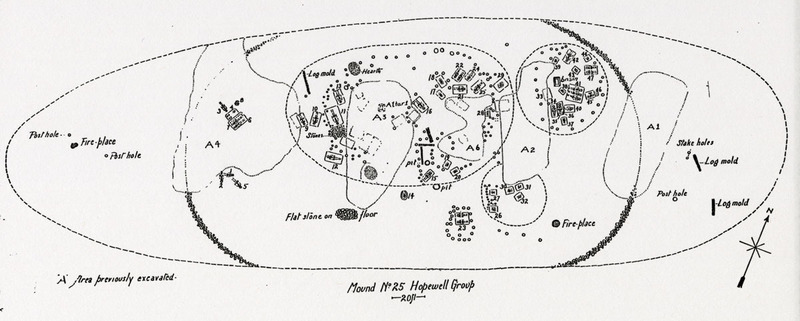Dublin Core
Title
5b.18 Studying the Hopewell Mound Group
Description
The Hopewell site, especially the 29 mounds within the large enclosure, has been the subject of several major archaeological studies. The first was during the 1840s and another, by the Ohio Historical Society, was between 1922 and 1925. Beginning in 1998, archaeologists with the National Park Service have conducted a number of investigations at the site. , Remote sensing surveys have identified several circular post hole patterns in the northeast corner of the enclosure, which may mark the sites of dwellings or ceremonial structures. In addition, these methods also revealed a large circular feature that may be the remnants of a previously unrecorded earthwork. The mounds covered the sites of charnel houses containing burials, some of which were cremated, in log tombs. Elaborate artifacts had been placed with some burials. In other cases objects were arranged in large deposits on the mound floors. The most complex structure, mound 25 (within the D-shaped enclosure), was 3 connected mounds that totaled 500 feet in length. The post holes found beneath mound 25 suggest that, like the Seip mound, it covered the site of a complex public building used for a variety of events including burials. Image Number: Society1926NewarkMound25HopewellGroup
Publisher
Ohio History Connection
Format
JPEG
Type
StillImage
Identifier
http://resources.ohiohistory.org/First_Ohioans/jSociety1926NewarkMound25.jpg
